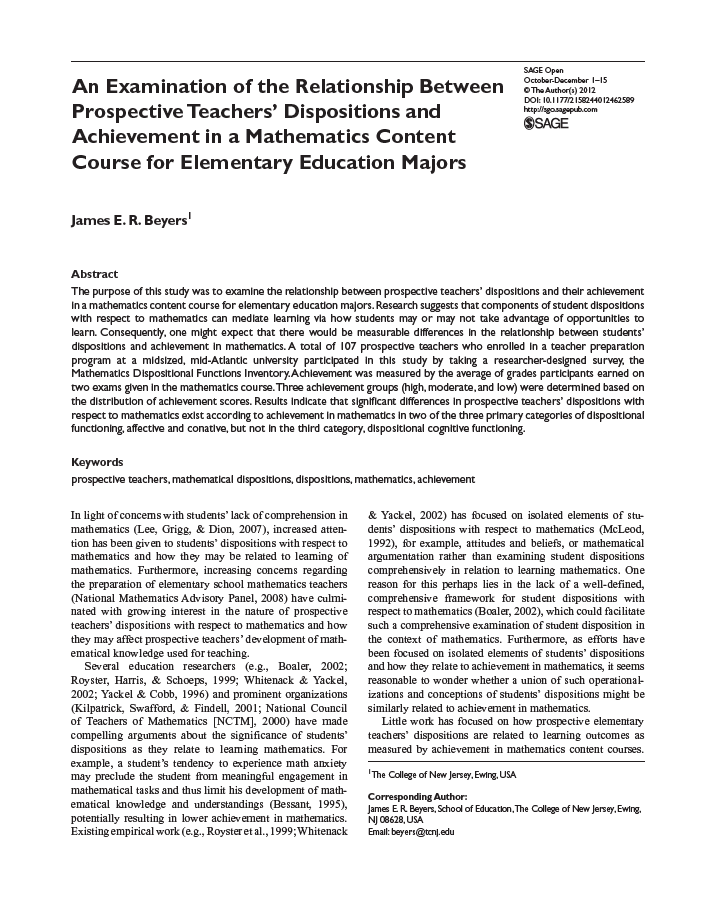An Examination of the Relationship Between Prospective Teachers’ Dispositions and Achievement in a Mathematics Content Course for Elementary Education Majors
Abstract
The purpose of this study was to examine the relationship between prospective teachers’ dispositions and their achievement in a mathematics content course for elementary education majors. Research suggests that components of student dispositions with respect to mathematics can mediate learning via how students may or may not take advantage of opportunities to learn. Consequently, one might expect that there would be measurable differences in the relationship between students’
dispositions and achievement in mathematics. A total of 107 prospective teachers who enrolled in a teacher preparation program at a midsized, mid-Atlantic university participated in this study by taking a researcher-designed survey, the
Mathematics Dispositional Functions Inventory. Achievement was measured by the average of grades participants earned on two exams given in the mathematics course. Three achievement groups (high, moderate, and low) were determined based on
the distribution of achievement scores. Results indicate that significant differences in prospective teachers’ dispositions with respect to mathematics exist according to achievement in mathematics in two of the three primary categories of dispositional
functioning, affective and conative, but not in the third category, dispositional cognitive functioning.

